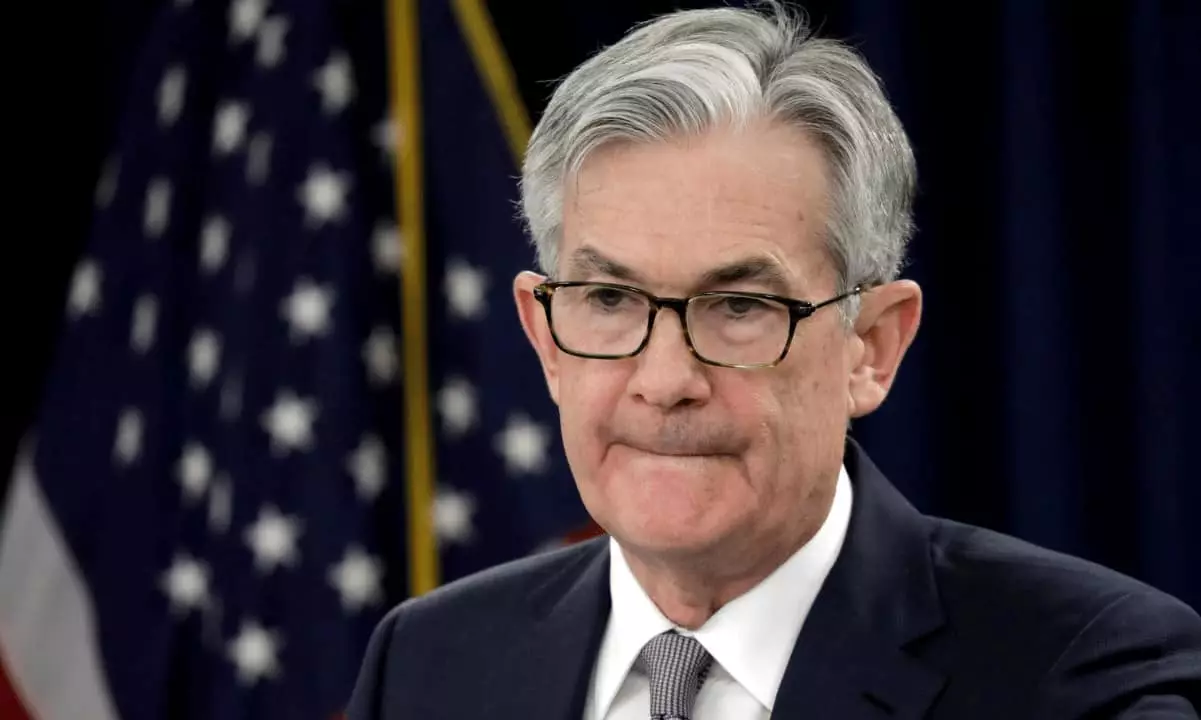Federal Reserve Chairman Jerome Powell has once again reiterated his skepticism towards Bitcoin, emphasizing its role as a speculative asset rather than a functional currency. This perspective was reinforced during his recent address at The New York Times DealBook Summit in Manhattan, where his remarks heightened the ongoing debate surrounding Bitcoin’s legitimacy and potential in the global financial landscape. By comparing Bitcoin to gold instead of the U.S. dollar, Powell reflects a conservative viewpoint that contrasts with the more enthusiastic perceptions within the cryptocurrency community.
Powell articulated his thoughts on Bitcoin’s fluctuating nature, suggesting that it embodies characteristics akin to gold—often viewed as a hedge against inflation but heavily influenced by market speculation. He posited that Bitcoin does not serve as a viable store of value, highlighting its unpredictable price movements as a barrier to acceptance for transactional purposes. His assertion that “it’s very volatile, it’s not a competitor for the dollar” signals a clear message to investors: Bitcoin is not a fundamentally stable asset capable of replacing traditional currency for daily transactions.
The current market climate has seen Bitcoin experience substantial price surges, pushing its market capitalization beyond $2 trillion. While proponents view this as evidence of Bitcoin’s growth and potential, Powell remains dubious, emphasizing the speculative underpinnings that often drive these price increases. For many investors skittish about the dollar’s stability, Bitcoin is appealing, yet Powell argues this enthusiasm stems from mischaracterizations of its value.
The backdrop of Powell’s commentary reflects an environment of increasing Bitcoin speculation and market engagement. However, historical perspectives remain critical in understanding his viewpoint. His consistent criticism since 2021 underscores a broader regulatory stance towards cryptocurrencies—where many view them as monetary assets failing to gain mainstream trust. Powell’s 2021 criticisms focused on the inability of cryptocurrencies to function effectively as reliable mediums of exchange or stores of value, further solidifying his stance that they should not be considered replacements for the dollar but rather as alternative investments comparable to traditional safe havens like gold.
The regulatory landscape surrounding cryptocurrencies has been contentious, particularly under the current administration. Critics, including Galaxy Digital CEO Mike Novogratz, have expressed concerns that Powell’s leadership may stifle innovation and growth within the cryptocurrency sector. Allegations of “Operation Chokepoint 2.0” indicate a government push to limit the cryptocurrency industry’s engagement with traditional banking systems—a sentiment echoed by Tyler Winklevoss, who asserts that efforts to suppress cryptocurrency are ongoing.
The fallout from such regulatory actions has been significant, with financial institutions that previously catered to crypto clients, such as Silvergate Bank and Silicon Valley Bank, shuttering operations amid increasingly stringent compliance mandates. These developments have cast shadows on the cryptocurrency sector, raising fears that vital banking relationships are being irreparably damaged, leading to an environment of uncertainty.
While Powell’s observations are undeniably significant, they also spark further inquiry into the future of cryptocurrencies in an evolving financial ecosystem. The differentiated treatment between Bitcoin and fiat currencies paints a complex picture, challenging the narrative of widespread adoption. The enthusiasm surrounding Bitcoin aligns with broader technological advances and demographic shifts towards digital investments. Still, regulatory hurdles may curtail this progress, mandating a careful approach from both investors and institutions.
Jerome Powell’s dismissal of Bitcoin as a feasible alternative to the U.S. dollar highlights significant concerns over the cryptocurrency’s volatility and role in the financial world. As regulatory scrutiny intensifies and market dynamics evolve, the trajectory for Bitcoin remains fraught with uncertainty. With leaders like Powell at the helm, one has to wonder if cryptocurrencies will ever achieve the maturity required to rival traditional monetary systems. Whether Bitcoin can transcend its speculative status to become a reliable store of value and transaction medium is a continuing narrative worth monitoring.

